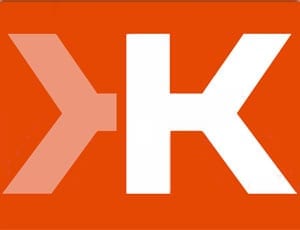Laurence Benson explores the social media ranking website Klout
Unless you have a Twitter or Facebook addiction, the word Klout probably doesn’t mean very much to you. However, before you dash off to search “What is…?” and get hit with a barrage of bizarrely popular searches such as “What is twerking?”, help is at hand.
Klout launched in 2009 and offers social media users the answer to a question social media that many secretly wonder about. That question is: “Exactly how important am I?” Their algorithm avoids the use of ‘glory’ stats, such as number of followers or likes, and instead puts emphasis on data points, including follower count, list memberships, percentage of spam followers and the influence rating of the people you interact with. This allows Klout to evaluate your personal or business account and from that, assign you a score; an indicator of exactly how important your online presence is. Effectively, Klout calculates your online ‘clout’ and in my view, it does it well.
The premise of the site is quality over quantity and in the years since it launched, it has certainly become more sophisticated. No longer simply a tool appealing to our sense of digital vanity, it has become the leading social media analytic service.
Klout’s laudable effort to quantify human social interaction, albeit online, is innovative. This begs the question: “Can they deliver on this promise?” For individuals, only time will tell, but for businesses, the importance of Klout is undeniable. It can reveal gaping flaws in the use of social media.
Many businesses view social media as a tool in which success is a numbers’ game. The more followers you have, the more successful you are. Klout not only shows this is incorrect, but shows businesses the right way to evaluate influence. Thanks to Klout, companies can now know whether they are using social media well. They can learn whether, behind all of the ‘likes’ and the followers, their highly valued customers feel ‘engaged’. This knowledge can be used to provide a direct platform to secure brand loyalty and increase repeat purchases.
However, the system isn’t perfect. It is possible for anyone to cheat Klout by saying overly controversial statements, sparking a viral reaction and raising their score, but serving no benefit to their business performance. And whilst it’s around since 2009, it’s only just beginning to show its power. With that in mind, businesses should be treating Klout with respectful suspicion. Right now, this site should be used as a gauge to determine whether you are successfully engaging your client base. Do not chase a high Klout score for the sake of a number: Achieve it with honesty, by optimising your interaction with your social network.
Laurence Benson is the founder of Lily & Benson, a creative consultancy specialising in web design, branding and online public relations. Follow him on Twitter @LaurenceBenson.
Subscribe to our free once daily email newsletter here:
